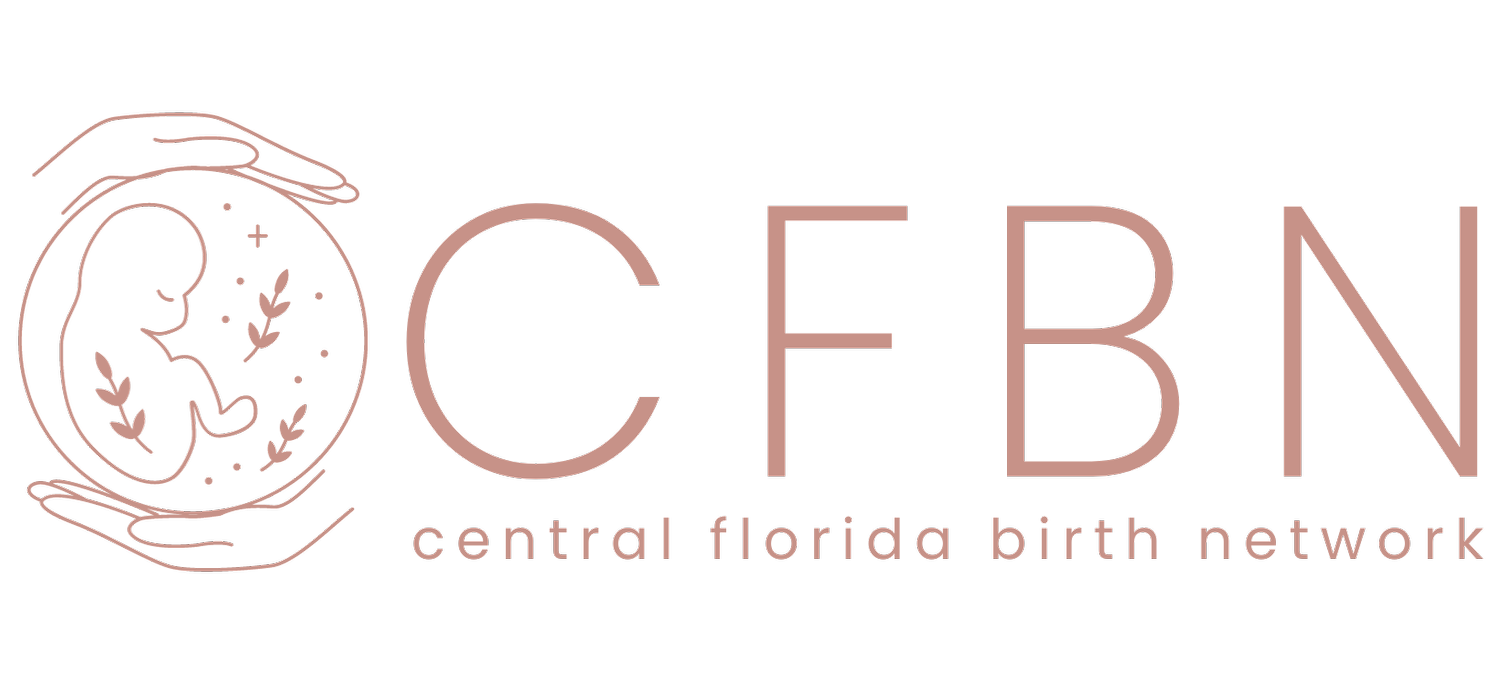Why you shouldn’t wait until the postpartum period to see a pelvic floor therapist.
Contributing Writer(s) for CFBN: Dr. Allie and Dr. Nahir of Anchor Pelvic Physical Therapy. This content may contain opinions that may or may not be shared by all CFBN Members. This content should not be considered a substitute for medical diagnosis or treatment. If you’re looking for a pelvic floor physical therapist, please consider using the Central Florida Birth Network’s Provider Directory.
Pregnancy is a beautiful and transformative journey, but if you've ever been pregnant, you know that it can bring about various physical challenges. Ever cough when you're 8 months pregnant and have that immediate instinct to cross your legs just in case? What about trying to put on shoes in the second trimester and feeling a sheering pain in your pubic bone? What about trying to stay active and not knowing how to modify exercise as your body changes and progresses throughout the pregnancy?
Amongst the beauty and joy of pregnancy, the reality is that your body needs more support. The pelvic floor muscles are one area that often gets overlooked during pregnancy. They play a crucial role in supporting the growing baby and maintaining our overall well-being. Pelvic floor therapy is a specialized form of physical or occupational therapy and it’s not just for after birth. Therapy can offer numerous benefits during your pregnancy. Here are some of our favorites:
Pain Relief: Regardless of what you have been told, you are not meant to experience pain during pregnancy. It's not normal to be in a great deal of pain and there is so much that we can do to help. Whether it's back, pelvic, hip pain or other discomfort, we are here to help manage this as your body adjusts to growing a baby. We use various techniques to alleviate these discomforts, making pregnancy a more pleasant experience.
Prevention and Treatment of Urinary Leakage: Most of us have been there. Cough a little too hard, try to jump on the trampoline and suddenly feel that leak of urine. Many women experience urinary incontinence or other bladder issues due to the pressure on the bladder caused by the growing uterus. Pelvic floor therapy can teach techniques to help manage these issues and even prevent them from occurring at all.
Preparation for Labor and Delivery: We love this one! Pelvic floor therapy can play a significant role in preparing the body for labor and delivery. Imagine trying to push a baby out when your pelvic floor muscles are tense. It’s not ideal. Therapists can teach relaxation techniques, breathing exercises, and positions that may be useful during labor, helping to enhance the birthing experience and help you achieve your birth goals.
Postpartum Recovery: Learning how to connect with your pelvic floor as well as exercises and good habits in pregnancy is a game-changer for postpartum recovery. We are here to set you up for success and address any postpartum concerns as well. Therapy aids in the healing process especially when there are things like tears, C-section scars, prolapse, the presence of diastasis recti etc. It's immensely helpful for women in regaining strength and function in the pelvic floor more quickly so you can get back to your individual goals whether it's keeping up with your kids, being intimate with your partner without pain or getting back to heavy weightlifting.
Pelvic floor therapy is a valuable resource that can enhance overall well-being during pregnancy and postpartum. By addressing pain, improving function, and preparing for birth it empowers women to have a more comfortable pregnancy and positive birthing experience. If you're expecting, we encourage you to speak with your provider about the potential benefits of pelvic floor therapy for you.
Contributing Author(s): Dr. Allie and Dr. Nahir are therapists at Anchor Pelvic Physical Therapy, a leader in pelvic health in the Orlando area
. They are part of the compassionate and knowledgeable team at Anchor Pelvic. “We are all committed to helping you achieve a joyful and functional pregnancy and successful recovery postpartum.”


